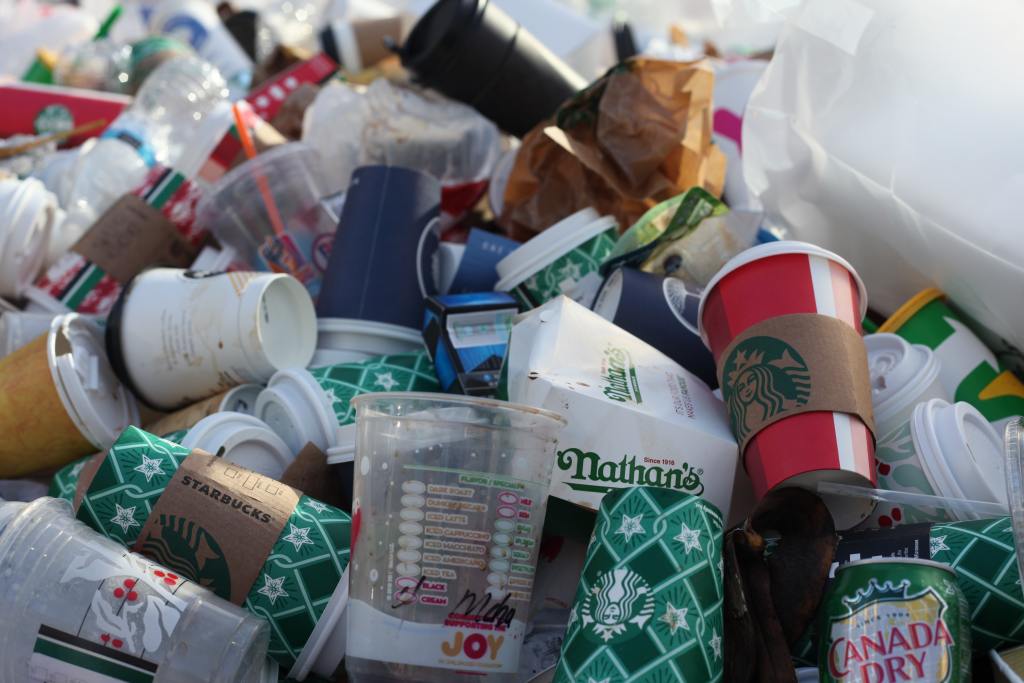Every household or business produces waste daily; however, not many give a thought to where these wastes end up or the impact they have on the environment. Ideally, we may not eliminate the wastes entirely, but we can minimize them and better manage trash collection.
Before tossing waste into the trash bin, it’s important to first sort them into the five main categories: recyclable, hazardous, solid, liquid, and organic waste.
All waste should be placed in their appropriate bins to ensure those that can be recycled or reused do not end up in landfills. Additionally, not everything that you no longer need should end up in the garbage. We have covered this and more below.

Things Not to Throw Into the Garbage
Household or business waste categorized as flammable, hazardous, or infectious shouldn’t be in the ordinary trash bin. These wastes include:
- Aerosol Cans. Most aerosol sprays have flammable chemicals or propellants that may pose fire risks. After emptying an aerosol can, check with your trash collection company to know whether they offer recycling services.
- Batteries. All batteries, from the smaller sizes for everyday household electronics to the larger lead-acid types, should never be mixed with household trash. Several companies offer battery recycling services, or you choose to drop them off at a local municipal site.
- Paint. Discarded or unused paint tossed in the trash can leads to air and land pollution. Paints contain harmful chemicals that can cause respiratory and other health-related issues. Most municipalities also have guidelines on how to dispose of waste paint safely.
- Tires. Old and damaged tires should be recycled instead of tossing them into the garbage. These tires can also be reused for landscaping projects.
- Electronics. Unlike most waste, electronics are easy to recycle. Some old electronics also tend to have a ready market, especially the large computerized appliances like TVs, microwaves, dish washes, etc.
- Motor Oil. This is one of the liquid wastes that can be detrimental to the environment. Motor oil can leak into the groundwater or end up in water sources suffocating water plants and animals. Instead, you should take them back to automotive repair shops for recycling.
The other waste products are food scraps, which should be composted instead of sending them to municipal landfills. Some, like construction debris, should be disposed of separately since they can be repurposed, reused, or recycled.
Planning Your Waste Disposal
The number one step to proper waste management is to reduce the waste generated in the form of plastics or any other disposable waste. This can be achieved by shifting to organic or reusable products. For instance, replace disposable diapers with natural diapers or reusable, non-plastic packaging.
The other waste management step you should take is to have various waste disposal bins customized for the different types of waste. This ensures every waste is handled correctly to guarantee safety and minimize its environmental impact.
Last but not least is to choose a trash collection company that offers a wide range of waste collection and pickup services. Typically, you should choose a company that offers recycling services and collects bulk items such as appliances, mattresses, and furniture. The company should also be professional in what they do and have a good reputation in the market.
Bottom line
Staying ahead of your trash collection and management needs requires a well-thought-out strategy. Not only should you be aware of the various types of waste and their environmental impact, but you should also choose the right trash collection company that offers all the services you need. Rethink your waste management strategy today and find a reliable waste collection partner to get started.

Leave A Comment